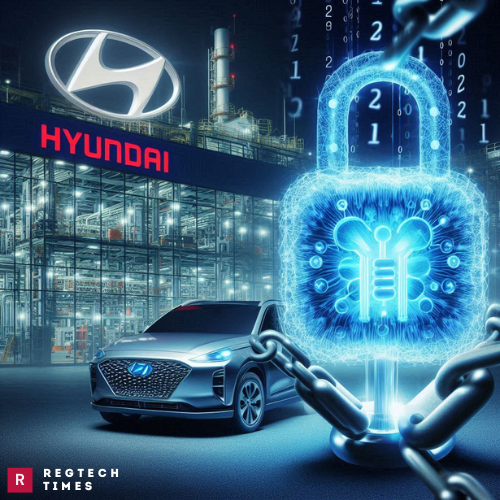In a significant legal development, a South Korean court has sentenced a former Hyundai Motor Company researcher and several accomplices to prison for the illegal transfer of valuable hydrogen fuel cell technology to China. This case has drawn widespread attention, emphasizing the increasing threats posed by industrial espionage and the critical importance of safeguarding trade secrets.
Hyundai Court Ruling and Sentences
On August 30, 2024, the Suwon District Court, led by Judge Ha Sang-je of the 12th Criminal Division, delivered its verdict against former Hyundai researcher A, sentencing him to five years in prison and imposing a hefty fine of 300 million won (approximately $225,000). In addition, two other defendants connected to Hyundai were sentenced for their roles in the illicit activities: former researcher B received a four-year prison term, while employee C was handed a two-year sentence. These penalties reflect the serious nature of the crimes, which involved leaking highly sensitive technology that is crucial to Hyundai’s competitiveness in the global market.
The individuals were charged with violating the Act on Prevention of Leakage and Protection of Industrial Technology and the Act on Prevention of Unfair Competition and Protection of Trade Secrets. These laws are designed to protect South Korea’s industrial innovations from unauthorized transfers and exploitation by foreign entities. The stolen technology is related to hydrogen fuel cell stacks, an essential component in the next generation of eco-friendly vehicles that Hyundai has invested heavily in developing.
Details of the Technology Leak
The case centers on the unauthorized transfer of Hyundai’s proprietary hydrogen fuel cell technology, particularly the membrane electrode assembly (MEA), which is a vital component in hydrogen fuel cell stacks. This technology enables the generation of electricity through a chemical reaction between hydrogen and oxygen, forming the foundation of hydrogen-powered vehicles.
Security Breach in South Korea: K-2 Tank Technology Leaked to Competitors
Between 2016 and 2018, the convicted individuals allegedly transferred detailed information about Hyundai’s hydrogen fuel cell systems to Chinese companies. This was done by exploiting their positions within the company to gain access to confidential information. The technology in question represents years of research and a substantial financial investment by Hyundai, making its theft a serious economic and strategic blow to the company.
In a particularly audacious move, the defendants established a joint venture in China in February 2019 to manufacture and sell components for hydrogen fuel cells, including the MEA. They secured a 17 billion won (approximately $12.7 million) investment from a Chinese hydrogen fuel cell developer, enabling them to fund their illegal operations. Additionally, they approached several of Hyundai’s partners to acquire more technical data needed to build a pilot production facility for hydrogen fuel cells in China.
Implications and Judicial Remarks on Technology Leak
Judge Ha Sang-je emphasized in his ruling that the stolen technology was developed at great cost and effort by Hyundai and that its unauthorized use for foreign purposes constituted a serious violation of South Korea’s trade secret protection laws. The court’s decision highlighted the need for severe penalties to protect national core technologies and deter future attempts at industrial espionage.
The ruling also addressed the involvement of four additional individuals, including representatives of a Hyundai partner company, who were found guilty of providing detailed technical specifications and drawings to facilitate mass production of hydrogen fuel cell stacks in China. They were sentenced to prison terms ranging from 10 months (suspended for two years) to four years. This highlights the complexity and scope of the conspiracy to illegally transfer Hyundai’s technology.
Broader Context and Future Implications
The case began with data from the National Intelligence Service in March 2019, which triggered a comprehensive investigation into the activities of the defendants. The outcome of this investigation reflects the South Korean government’s growing commitment to combating the unauthorized transfer of critical technologies, especially in industries like automotive and green energy, where Hyundai is a global leader.
For Hyundai, the ruling serves as both a warning and a reassurance. On one hand, it confirms the vulnerability of even the most secure organizations to internal threats and industrial espionage. On the other hand, it demonstrates the effectiveness of South Korea’s legal system in punishing those who violate its laws to protect corporate and national interests. Hyundai has implemented stringent measures, including non-compete clauses for employees and advanced internal security protocols, to prevent such leaks.
Moving forward, Hyundai and other major corporations must remain vigilant against the threat of industrial espionage. As global competition intensifies, the protection of trade secrets and intellectual property becomes more critical than ever. Hyundai’s experience in this case reinforces the need for companies to continuously upgrade their security measures and for governments to rigorously enforce laws against technology theft.
The sentencing of the former Hyundai researchers and their accomplices is a significant reminder of the ongoing challenges in protecting valuable technological advancements. As technology continues to drive global economic growth and innovation, companies like Hyundai must be proactive in safeguarding their intellectual property to maintain their competitive edge and ensure national security.


